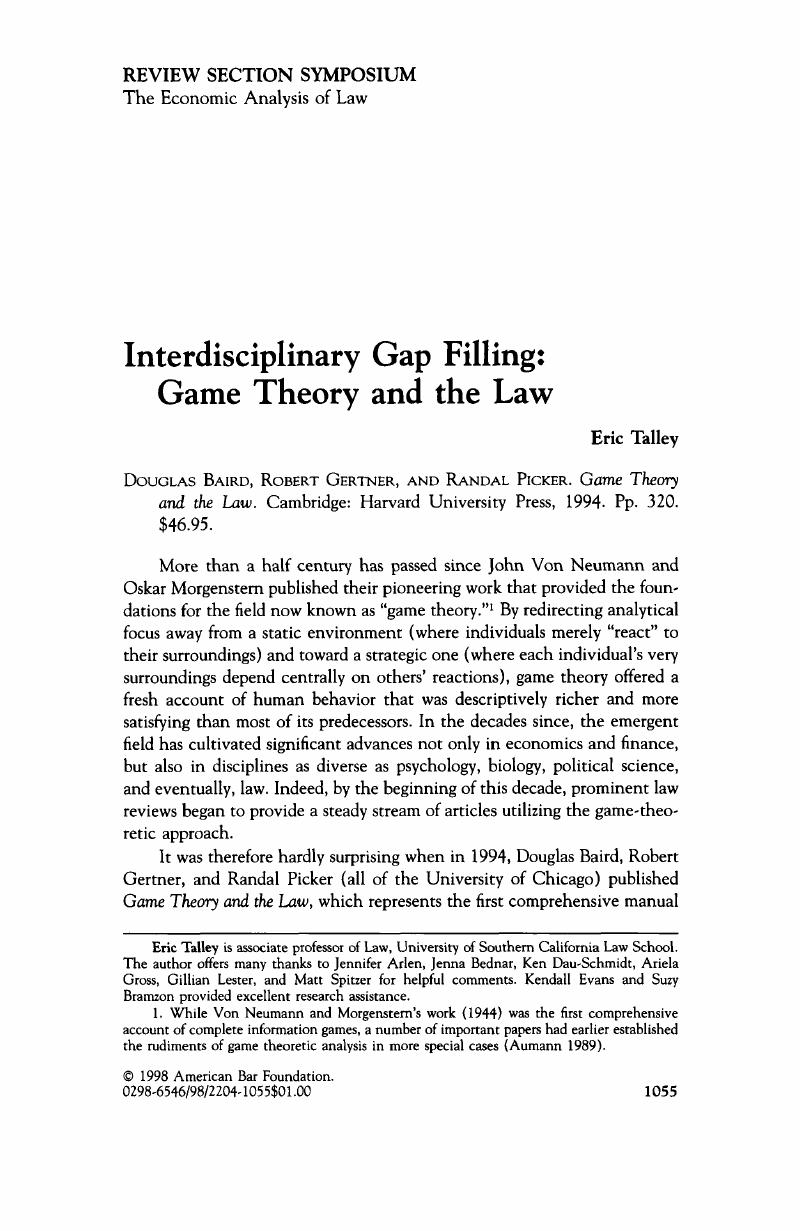Crossref Citations
This article has been cited by the following publications. This list is generated based on data provided by Crossref.
Klerman, Daniel M.
2000.
Female Prosecutors in Thirteenth-Century England.
SSRN Electronic Journal,
Huang, Peter H.
2000.
Reasons within Passions: Emotions and Intentions in Property Rights Bargaining.
SSRN Electronic Journal ,
McCaffery, Edward J.
2000.
Must We Have the Right to Waste?.
SSRN Electronic Journal,
Alvarez, R. Michael Michael
and
McCaffery, Edward J.
2000.
Is There a Gender Gap in Fiscal Political Preferences?.
SSRN Electronic Journal,
MacLeod, W. Bentley Bentley
and
Pingle, Mark
2000.
An Experiment on the Relative Effects of Ability, Temperament and Luck on Search with Uncertainty.
SSRN Electronic Journal,
Klerman, Daniel M.
and
Garoupa, Nuno M.
2000.
Optimal Law Enforcement with a Rent-Seeking Government.
SSRN Electronic Journal ,
Lester, Gillian L.L.
and
Talley, Eric L.
2000.
Trade Secrets and Mutual Investments.
SSRN Electronic Journal ,
MacLeod, W. Bentley Bentley
2000.
Cognition and the Theory of Learning by Doing.
SSRN Electronic Journal,



